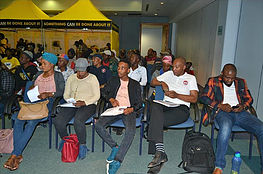Homeless Link: Homelessness Law, Practice, and the Homelessness Reduction Act Course
Homeless Link will be holding knowledge courses on homelessness legislation and practice in the United Kingdom (UK). The next available classes will be held in Newcastle, UK on Tuesday, September 25, 2018, and in Manchester, UK on Wednesday, September 26, 2018 to help people working in the homelessness service sector develop an understanding of the updated Homelessness Reduction Act. Participants will learn about five key areas: eligibility for assistance, homelessness, priority need, intentionality and local connection. The aim is to help service providers best support clients to achieve their best housing outcome.
Register for the course in Newcastle here.
Register for the course in Manchester here.
Ending Rough Sleeping in England by 2027
The Communities Secretary of England, James Brokenshire, unveiled a new strategy to drive an end toward street homelessness throughout the country by the year 2027. The plan will offer targeted support, including assistance for mental health issues and substance abuse, to people sleeping rough. According to the Guardian, the Department for Communities and Local Government estimates that over 4,700 people were living without shelter in 2017. The government will take a three-pronged approach to the issue – prevention, intervention, and recovery.
“This strategy is about how we can support people, how we can direct, and yes, sometimes challenge, some of those who are living rough to get into those services that will help make a difference,” said Brokenshire.
Read the article here.
Indianapolis, Indiana Community Plan to End Homelessness

The Coalition for Homelessness Intervention and Prevention (CHIP), the Indianapolis Continuum of Care, and their community partners collaborated to assemble a five-year, comprehensive plan to end homelessness by the year 2023. They define this as: ensuring that any individual or family in Indianapolis who experiences homelessness will spend no more than 30 days without a permanent, safe, affordable place to live. The plan supports strategies outlined in Opening Doors – the United States’ first national comprehensive plan – and was developed by local agencies, advocates, and people with lived experience of homelessness in Indianapolis. The plan introduces the city’s strategic priorities and their strategies to achieve them. Strategic Priority 3, for example, is to expand and enhance wraparound services to enhance housing stability and prevent returns to homelessness. They also map out strategies for addressing homelessness among specific populations – veterans; youth and young adults; families; and people who have experienced chronic homelessness. Indianapolis leaders are continuing to build on a shared approach to make homelessness in their city rare, short-lived, and recoverable.
Read the plan on the IGH Hub.
Where Do Hong Kong’s Rough Sleepers Go?
According to figures from Hong Kong’s Social Welfare Department, approximately 1,127 people reported to be experiencing street homelessness in the region between 2017 and 2018. About half of those people said that their inability to afford housing costs led to their homelessness. Other reasons include unemployment, the need to be closer to work, fleeing family conflict, and more. While few businesses in Hong Kong stay open for 24 hours, about half of the 240 McDonald’s do, making it a place that people utilize for temporary shelter. There are several temporary shelters available however, they sometimes go underutilized because some people prefer not to abide by shelters’ rules and regulations.
“If the government continues to avoid tackling the fundamental causes – the rocketing housing prices and the shortage of community infrastructure in the face of population expansion – social service providers like us won’t be able to cover the constantly growing homeless group, no matter how hard we work and how willing we are to serve,” said a local social worker.
Read the article here.
Adelaide, Australia Launches Online Tool to Track Rough Sleeping
As part of the Don Dunstan Foundation’s (DDF) Adelaide Zero Project, Adelaide, Australia launched an online dashboard that tracks the number of people sleeping rough. The tool also keeps a record of how many people have been moved into secure housing. Executive Director of DDF, David Pearson, says that the effort can help bridge the gap in public awareness of the city’s street homelessness. The foundation’s goal is to maintain the dashboard as close to real time as possible. The Adelaide Zero Project has connected over 35 organizations, with the goal to make Adelaide the first Australian city to achieve functional zero homelessness in the inner-city by 2020. Adelaide is also the second city to join our A Place to Call Home Campaign, a global effort to support 150 cities to end street homelessness by 2030.
Read the article here.
Tshwane Holds Employment Expo for People Experiencing Homelessness
Tshwane, South Africa’s Metro Department of Community and Social Development held an expo to connect people experiencing homelessness with local organizations who can help them with employment. Deputy Director of Welfare Services, Tinyiko Maluleke, says that the city has revised their plan to address local homelessness. More than 150 people attended the event. Read more about Tshwane’s efforts to reduce homelessness as a vanguard city in the A Place to Call Home Campaign here.
Read the article here.

